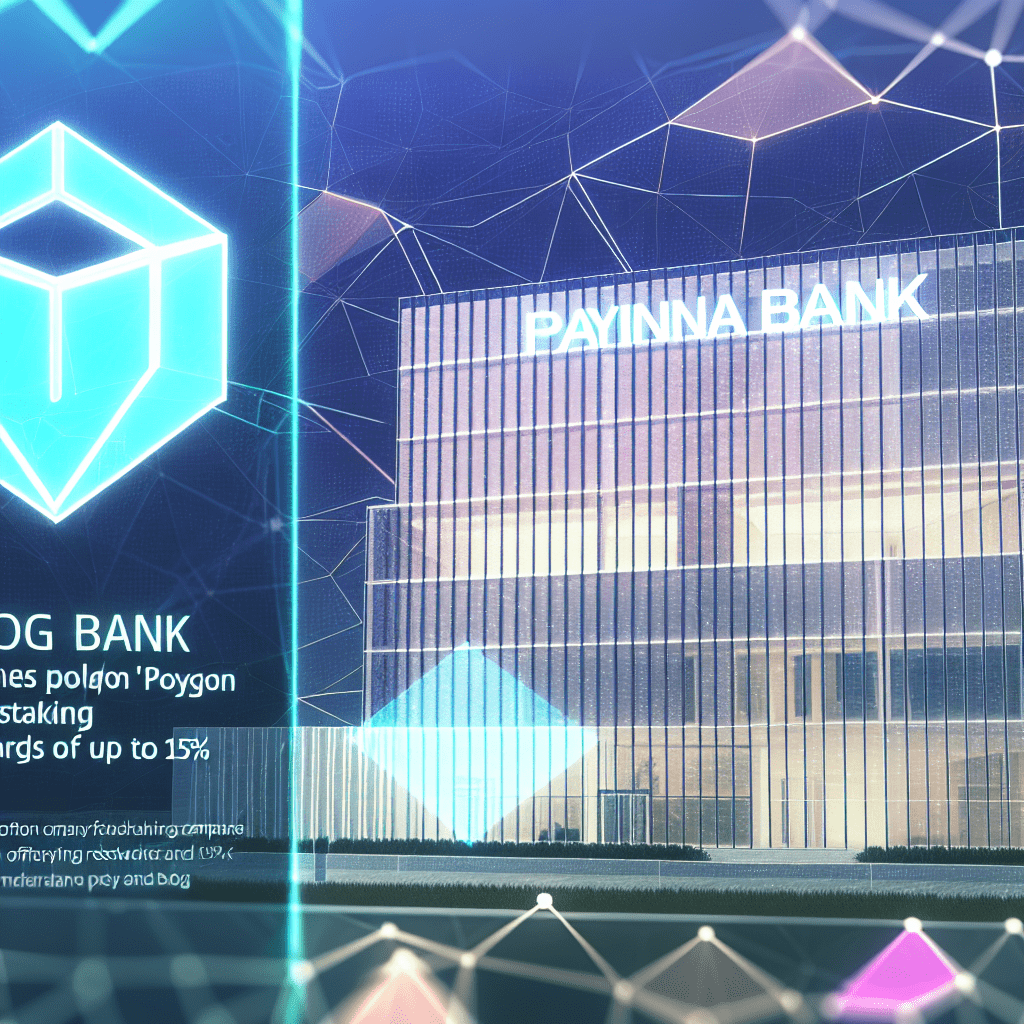Update (Oct. 9, 12:30 pm UTC): This article has been revised to include further commentary from Maria Adamjee.
Amina Bank, a Swiss crypto bank, has emerged as the first financial institution to provide staking services for POL, the native token of the Polygon network.
Based in Zug and licensed by the Swiss Financial Market Supervisory Authority (FINMA), announced on Thursday that it will offer institutional clients up to 15% in staking rewards through a new partnership with the Polygon Foundation.
“By expanding our POL services, we are providing institutional clients with regulated access to the blockchain, allowing them to earn rewards for enhancing the stability and security of a blockchain utilized by major financial institutions,” said Myles Harrison, Amina’s chief product officer.
Maria Adamjee, head of investor relations at Polygon Labs, clarified that staking rewards are based on validator yields. She mentioned that if an institution purchases and stakes POL, it currently earns about 4% in validator yield, plus an additional 10% bonus in POL after staking for a year.
“Hence, we reach the ‘up to 15%’ figure — this combines network yield with a one-time bonus incentive,” she explained to Cointelegraph. “The base yield fluctuates based on network performance, whereas the bonus POL is fixed for those who maintain their stake for the entire year,” Adamjee added.
Adamjee noted the early interest from asset managers, corporate treasuries, and family offices. “The combination of rewards, airdrops, and network participation is proving quite appealing,” she observed.
Related: DeFi staking: A beginner’s guide to proof-of-stake (PoS) coins
Polygon surpasses $1 billion in tokenized assets
Polygon (POL) supports significant Web3 initiatives from financial giants such as BlackRock, JPMorgan, Franklin Templeton, and Stripe. The network is also establishing itself as a hub for tokenization and on-chain finance.
Data from RWA.xyz indicates that Polygon ranks third among all blockchains for real-world asset (RWA) tokenization, with over $1.13 billion in total value across 273 tokenized assets. Ethereum retains the top position with a 56% market share.
In May, Amina Bank, previously known as Seba Bank, reported record results for 2024, with revenue rising 69% year-over-year to $40.4 million and assets under management climbing 136% to $4.2 billion, fueled by robust institutional demand and global expansion.
Related: Grayscale stakes $150M ETH as SEC altcoin ETF deadlines approach
Coinbase to offer staking in New York
Amina Bank’s new offering coincides with a growing interest in staking services. On Wednesday, Coinbase obtained approval from New York regulators to provide staking services to residents, allowing users to earn rewards on assets such as Ether (ETH) and Solana (SOL).
On Monday, Grayscale became the first US-based crypto fund issuer to launch staking for its exchange-traded products (ETPs), beginning with its Ethereum and Solana funds.
Magazine: 7 reasons why Bitcoin mining is a terrible business idea

